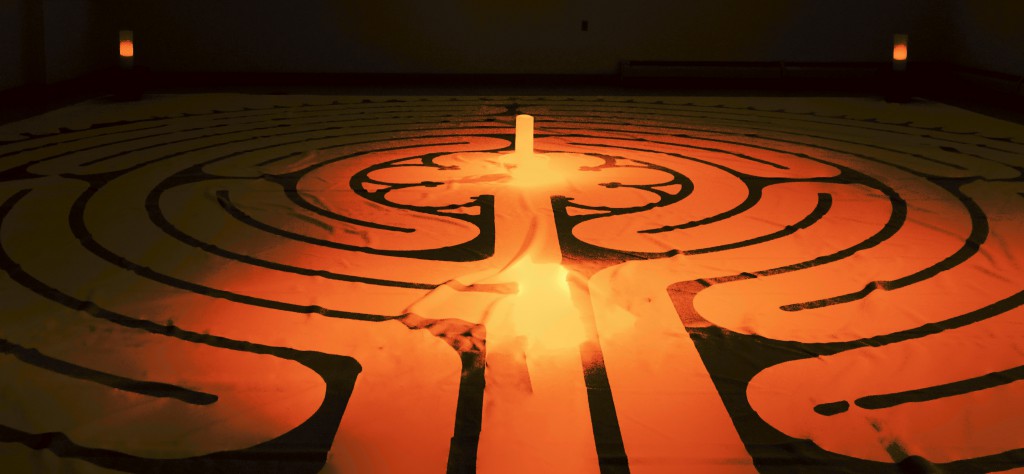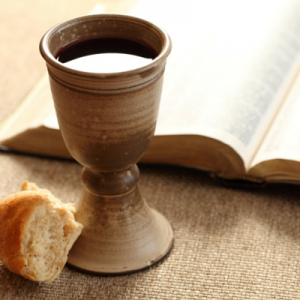Sacrament of Communion
This is the joyful feast of the people of God. Men and Women, youth and children, come from the east and the west, come from the north and the south, and gather about Christ’s table.*
We believe that all people are included in the Family of God. The church recognizes no barriers in the sacrament of Communion. Children, as part of the whole people of God, are welcome to be included at the table.
We are also reminded in scripture that Jesus said, “let the little children come to me, and do not hinder them, for to such belongs the kingdom of heaven.†(Matthew 19:14) After careful reflection and study and based upon scripture, tradition, and faith, the Diaconate and the Christian Education Committee have jointly developed the following guidelines.
We, the congregation believe:
- Everyone is welcome to participate in the Sacrament of Communion.
- In promoting a greater understanding of the Sacrament of Communion for all. It is the responsibility of the congregation to provide support and the responsibility of the Diaconate, the Christian Education Committee, and the Pastor to provide formal education.
- In encouraging parental guidance and involvement in children’s participation in the Sacrament of Communion.
The Sacrament of the Lord’s Supper is a gift freely given by Christ to nourish each and every one of us, the whole people of God.
Communion is served on the first Sunday of every month
*U.C.C. Order of Service, The Hymnal of the United Church of Christ, page 20
Baptism in the United Church of Christ

What does Baptism signify?
The sacrament of baptism is an outward and visible sign of the grace of God. Through baptism, a person is joined with the universal church, the body of Christ. In baptism, God works in us the power of forgiveness, the renewal of the spirit, and the knowledge of the call to be God’s people always.
How does Baptism take place?
Baptism with water and the Holy Spirit is the sign and seal of our common discipleship. Since baptism is God’s gift, the Holy Spirit is called to be upon the water and those being baptized. The act of baptism also marks the beginning of new life of discipleship with Christ, the human response to that gift.
Why is water used?
Water is an essential element of baptism. Water is a prominent symbol of cleansing and life in the Bible—the water of creation, the great flood, the liberation of Israel through the sea, the water of Mary’s womb, the baptism of Jesus in the Jordan River, the woman at the well, and Jesus’ washing of the feet of the disciples. That is why water is visibly present in the service. In the United Church of Christ, the mode of baptism is a matter of choice. Some traditions use sprinkling, some pouring, and some immersion.
Who is baptized in the UCC?
Infants, children, youth and adults. For infants and children, as well as for youth and adults who have never been baptized before, baptism marks their acceptance into the care of Christ’s church, the sign and seal of God’s grace and forgiveness, and the beginning of their Christian faith and life.
Is Re-baptism necessary?
The United Church of Christ recognizes the validity of all baptisms, therefore there is no need for re-baptism. If there is a question about whether baptism has taken place, a conditional phrase may be added as a person is baptized, such as “if you are not already baptized.” It is a well-accepted practice, however, for people to renew their baptismal vows in a service of baptismal renewal, such as the Order for Renewal of Baptism in the UCC Book of Worship.
Is there a special time for Baptism?
Baptism is a personal celebration in the lives of the individual candidates and their families. It is also a celebration within the local church family and a recognition of its commitment. For this reason, baptism is celebrated in the presence of the community gathered for worship. If circumstances require baptism to take place outside of corporate worship, members of the local church, if possible, may participate in the ceremony with the pastor. In urgent circumstances, such as imminent death, any Christian may perform the baptism.
When should a person be baptized?
Baptism may take place at any worship service where the community is gathered. In the early Christian church, the season of Lent was used as the final period for the preparation of candidates. In the scriptures that are read during the seasons from Advent up to Easter, there are many texts that teach the faith and point toward baptism. In the early church, the candidates were baptized together at the Vigil of Easter (the pre-dawn Easter service). Some local churches still perform baptisms at this service, or on Pentecost Sunday, and also baptize throughout the year.
Are sponsors present?
Parents, in consultation with the pastor, may choose sponsors or Godparents for infants and young children who are to be baptized. Other candidates for baptism may also be given this opportunity to have sponsors. At the time of the baptismal service, the sponsors, who accompany the candidates and present them for baptism, may make promises identical to the promises of the parents concerning their role.
What words are used?
The Book of Worship of the United Church of Christ provides an Order for Baptism and orders for Affirmation of Baptism. The recognition of our baptism by the ecumenical church is important to us, and the Book of Worship encourages the use of language recognized in most Christian churches: “I baptize you in the name of the Father, the Son and the Holy Spirit.” Feminine images for God may surround these words to enrich understandings and offer balance.
Walking the Labyrinth

Our labyrinth is a classical Chartres design. It is set up and open to supervised use by the public during special times of the church year such as Advent, Lent, and All Saints Sunday.
Walking a labyrinth is an ancient method for the practice of prayer and meditation. The labyrinth represents a journey to our own center and back again out into the world. There is no right way to walk a labyrinth. You only have to enter and follow the path. However, your walk can encompass a variety of attitudes. It may be joyous or somber. It might be thoughtful or prayerful. You may use it as a walking meditation.

All Saints Sunday is a day for the commemoration of those who have died in the past year. It is held on the first Sunday in November.
